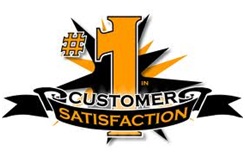|
 |
|
 |
Setting up a business
20 questions – can you run a successful business? The more ‘yes’ answers you have (and be honest!) the more likely you will be a successful entrepreneur like Virgin's founder, Richard Branson. 1. Are you passionate about achieving things in your life, and do you keep this enthusiasm through difficulties? 2. Do you energetically pursue your goals and thrive on long hours? 3. Are you self-confident and determined when things go wrong? 4. Do you have skills and knowledge that could be sold to customers? 5. Can you control stress and make decisions when the going gets tough? 6. Are you good at selling yourself? 7. Do you know the difference between cash and profit? 8. Are you a good negotiator? 9. Are you prepared to take calculated risks? 10. Do you learn from other people and accept their good advice? 11. Will your family and friends totally support you in a new business venture? 12. Are you physically fit? 13. Have you the money to get started on your own? 14. Are you prepared to risk your house and possessions and suffer low pay for the sake of a new business? 15. Are you willing to give up your leisure time for your business? 16. Are you prepared to learn new skills for your business? 17. Do you think before you act? 18. Can you face the possibility of making decisions on your own? 19. Are you well organized, so that you do things in the quickest possible time? 20. Do you keep going until a task is as well done as it can be?
How to run your own business
1. Be sure you can do it Ask yourself the 20 questions above - in particular make sure you:
2. Prepare a business plan A business plan is essential not only for the successful running of a business but also for banks, if you want to borrow money. It shows why the business will be successful now and in the future (see how to write a business plan and the points discussed below).
3. Delight your customers Customer satisfaction is the key to making your business successful. So you must get these things right:
a) price How much are people prepared to pay? This is dependent on your competition (see point 4).
b) product Does it give customers what they want better than competitors?
c) place
d) promotion Where you should advertise or promote your product (e.g. newspapers and personal selling). Success in these 4 P’s depends on knowing who your present and future customers are. So market research is essential.
4. Know and beat your competitors (and plan ahead) Avoid your competitors’ strengths and exploit their weaknesses. Try to anticipate what they might do and plan accordingly. Business success also depends on innovation and change, continually finding customer solutions better and quicker than competitors.
5. Have enough resources of the right quality The 4 M’s remind you of the resources you will need in your business: • Men (and women!) - recruit and train the best people (if you can’t run the business on your own). • Materials – get the best possible deal from your suppliers. • Machinery (and property) – use them to maximize customer satisfaction. • Money – see point 6. 6. Manage your money well
a) know your balance sheet and income statement (or profit and loss account) (see financial accounting).
b) make sure you have enough cash – a cash flow forecast is vital, because it predicts your cash incomes and expenditures (and so potential cash shortages) (see cash flow management).
c) control your costs Use budgets to control your spending – see budgeting and cost control.
d) measure the performance of your business – key indicators are:
Also see analysing accounts.
e) know about book-keeping You will have to decide whether or not you are going to do your own books, or employ an accountant. A book-keeping course will save you a lot of money. You will need to complete documents that record vital financial information (in brackets):
Key quotes explained
“About half of what separates the successful entrepreneurs from the non-successful ones is pure perseverance” - Steve Jobs , Apple’s co-founder (pictured right) Any successful business has to survive failure and difficulty. Remind yourself that anything worthwhile is worth fighting for. You must be tough but flexible enough to adapt to changing circumstances and customer requirements. “A man should endeavour to be as pliant as a reed, yet hard as cedar wood”, the Talmud, the Jewish holy book, says.
“Potential entrepreneurs...are people who imagine things as they might be, not as they are, and have the drive to change the world around them” - Anita Roddick , founder of the Body Shop (pictured right) This emphasis on creativity and change is confirmed by the management writers, Gary Hamel and C.K. Prahalad, who defined business success as “the ability to imagine what could be”.
“Commit to your business. Believe in it more than anybody else” - Sam Walton (founder of Wal-Mart stores, pictured right) Be inspired by a vision for your business Sam Walton wanted to satisfy customers with quality and low prices and work as hard as possible to make it happen. Make your own luck. The Greek philosopher, Seneca, said: “Luck is what happens when preparation meets opportunity”.
“My interest in life comes from setting myself huge, apparently unachievable, challenges and trying to rise above them” - Richard Branson , founder of Virgin (pictured right) Push yourself to achieve great things, and never doubt your ability to do them. “Hitch your wagon to a star”, Ralph Waldo Emerson, the American philosopher , said.
Best books Read an autobiography/ biography of a successful entrepreneur. For example:
Richard Branson, Losing My Virginity (1999) This explains the reasons for his successful business – continuous innovation customer satisfaction, employee motivation, risk taking and challenging aims.
Michael Gerber (pictured right), The E Myth (1995) Small business owners are successful because of their:
|
|
|
||
|
|
|
||
|
||
| Copyright © wisdomtowin.com All Rights Reserved | ||
|













